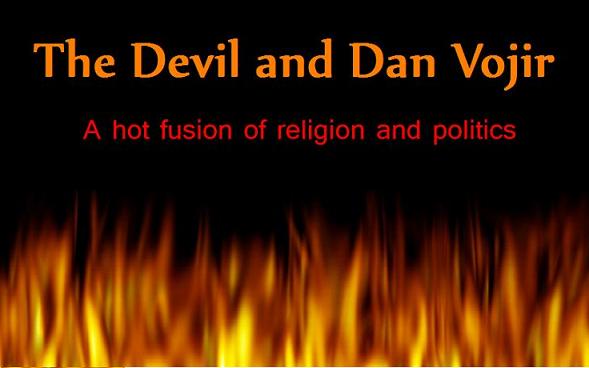When You Care Enough To Be the Most Insidious
Serious Illness - Weight Loss Encouragement - Menopause - Divorce - Miscarriage - New Dog
There's a Norman Vincent Peale Sentiment for Every One of them!
There's a Norman Vincent Peale Sentiment for Every One of them!
Goddam You Hallmark Cards!!
(and you think today's candidates have a hard time with profiteering preachers!)
For sheer nuggets of "wisdom", comfort and uplifting spirit, there's nothing like a Norman Vincent Peale-inspired Hallmark card.
Of course, a lot of fake-optimist-psychology goes along with it. As well as a good dose of right-wing political thinking.
O.K., who was the preeminent preacher who got too close to politics in the 1950s? It was that uplifting but sappy sentimentalist, Dr. Norman Vincent Peale. What is today's treacle was yesterday's paper sermon (with a background of hands in prayer or pink roses). Norman Vincent Peale prose was, in effect, everywhere. The author of The Power of Positive Thinking, Peale and his franchise reached out to all points of the globe. It was, however, when Peale made his voice heard in the political realm that he proved just how insidious his prose really was. The beliefs behind the benign-looking minister were on the par with Parsley and Hagee - at least for his time:
Regarding Peale's intrusion into Republican politics, Stevenson said in this transcript of a speech given in San Francisco: "Richard Nixon has tried to step aside in favor of Norman Vincent Peale (APPLAUSE, LAUGHTER)... We can only surmise that Mr. Nixon has been reading 'The Power of Positive Thinking.' (APPLAUSE). America was not built by wishful thinking. It was built by realists, and it will not be saved by guess work and self-deception. It will only saved by hard work and facing the facts." (Pacifiradioarchives.org/projects/transcripts/pdf/adlai_jfk.pdf - M).
Peale is also best remembered in politics by the famous Adlai Stevenson quote: "I find Paul appealing and Peale appalling." The origin of the quote can be traced to the 1952 election, when Stevenson was informed by a reporter that Peale had been attacking him as unfit for the presidency because he was divorced.
And Peale was totally against Kennedy because he was Catholic:
"Faced with the election of a Catholic," Peale declared, "our culture is at stake. (The Religious Issue: Hot and Getting Hotter. Newsweek. Sept 19, 1960.) In a written manifesto Peale and his group also declared JFK would serve the interests of the Catholic church before the interests of the United States ...and that the election of a Catholic might even end free speech in America. (National Review. Jan. 28, 1961). Protestant theologian Reinhold Neibuhr responded "Dr. Peale and his associates... show blind prejudice." (Take that John Hagee!)
As far as "positive thinking" was concerned, psychologists and psychiatrists all over the country cried out at how truly harmful Peale's philosophy truly was:
Peale's views are critically reviewed in a 1955 article by psychiatrist R. C. Murphy, published in The Nation, titled "Think Right: Reverend Peale's Panacea." "With saccharine terrorism, Mr. Peale refuses to allow his followers to hear, speak or see any evil. For him real human suffering does not exist; there is no such thing as murderous rage, suicidal despair, cruelty, lust, greed, mass poverty, or illiteracy. All these things he would dismiss as trivial mental processes which will evaporate if thoughts are simply turned into more cheerful channels....The belief in pure evil, an area of experience beyond the possibility of help or redemption, is automatically a summons to action: 'evil' means 'that which must be attacked . . .' Between races for instance, this belief leads to prejudice. In child-rearing it drives parents into trying obliterate rather than trying to nurture one or another area of the child's emerging personality . . . In international relationships it leads to war. As soon as a religious as a religious authority endorses our capacity for hatred, either by refusing to recognize unpleasantness in the style of Mr Peale or in the more classical style of setting up a nice comfortable Satan to hate, it lulls our struggles for growth to a standstill . . . Thus Mr Peale's book is not only inadequate for our needs but even undertakes to drown out the fragile inner voice which is the spur to inner growth." Peale was also a Scottish Rite Freemason (33°)
"As soon as a religious authority endorses our capacity for hatred..." I've talked about Christofascists before. Could there be a more apt description of our religious authorities today?
And in regards to politics, knowing what we know now about George Bush's ways of thinking (sorry), wouldn't you say that Bush had taken as much political advice from Peal as from Robertson, Falwell and, ah, Haggard?









